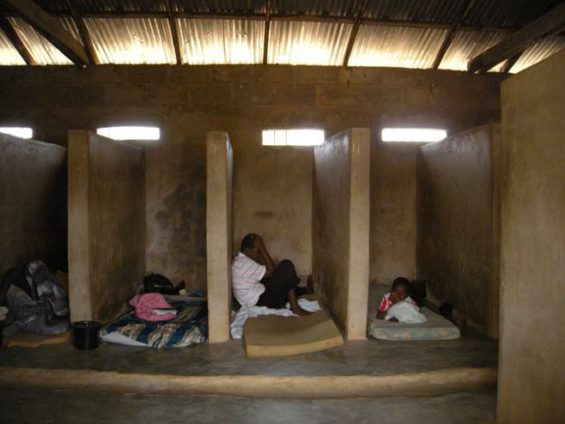
Audio By Carbonatix
Challenges with shelter among the Ghanaian population is a factor when it comes to mental health issues confronting the country.
This is according to Professor Divine Ahadzie, Head of the Centre for Settlements Studies at the Kwame Nkrumah University of Science and Technology (KNUST).
He has proffered some solutions in providing affordable and decent housing in Ghana. Ghana has a social housing problem. The country has a housing deficit of 1.7million units.
To meet the shelter needs of the population, an estimated 170,000 housing units would have to be built annually. Prof. Divine Ahadzie observed that access to good descent houses promotes good health.
According to him, the housing problems such as high rent charges and frustrations dealing with homeowners, can worsen mental health problems.
"When you have the larger population having issues with housing, then there is a likelihood that the mental health of many people will be affected. It is linked to production at work, happiness and social life. Hence, once you take care of the home, mental health is also taken care of."

Prof. Ahadzie alluded to the compound housing concept as being helpful in meeting the accommodation needs of the populace.
He is prevailing on the government to upgrade the compound housing concept as an urban social housing strategy.
"Now compound houses are not economical in the cities, because if you put up a compound house you won’t get people to rent. Now compound houses are not built anymore. The existing ones are being upgraded so that sharing amenities are eliminated.
He continued that, "...this has raised the cost of rent pushing out the traditional compound house occupants, yet the government has not come in to fill the gap. Now the Minister is pushing for the National Housing Authority to be called to parliament and questioned on the policy for such people in addressing their housing needs."
Prof. Ahadzie also believes there are opportunities in reducing housing through the use of local materials.
"It has been established that over 70% of our soil composition is laterite. That is why we normally use it for construction of our roads and building of traditional houses.
However, through research and technology, he said that it has been upgraded to a new level of acceptable housing.
"Regardless of this, people still live with some regressive perception toward the laterite material. It is a matter of government policy and direction. People should also embrace it."
Latest Stories
-
24-Hour Economy not just talk — Edudzi Tamakloe confirms sector-level implementation
10 minutes -
Four arrested over robbery attack on okada rider at Fomena
12 minutes -
NDC gov’t refusing to take responsibility for anything that affects Ghanaians – Miracles Aboagye
37 minutes -
Parental Presence, Not Just Provision: Why active involvement in children’s education matters
1 hour -
24-Hour economy policy fails to create promised jobs – Dennis Miracles Aboagye
1 hour -
Ghana Embassy in Doha urges nationals to take shelter after missile attack
1 hour -
Government’s macroeconomic stability commendable, but we need focus on SME growth – Victoria Bright
2 hours -
Macro stability won’t matter without food self-sufficiency- Prof. Agyeman-Duah
2 hours -
How Virtual Security Africa is strengthening safety at Mamprobi Polyclinic
2 hours -
Ghana on right track macroeconomically, but structural gaps remain – Fred Dzanku
2 hours -
ADB MD honoured for impactful leadership at PMI Ghana engagement
2 hours -
Bringing Ofori-Atta’s photo to Parliament and displaying it was unfair – Afenyo-Markin
3 hours -
Minority leader calls 24-Hour economy policy more PR than practical solution
3 hours -
Afenyo-Markin accuses government of using anti-corruption drive to target opponents
3 hours -
GPL: Kotoko announce new board of directors
3 hours

